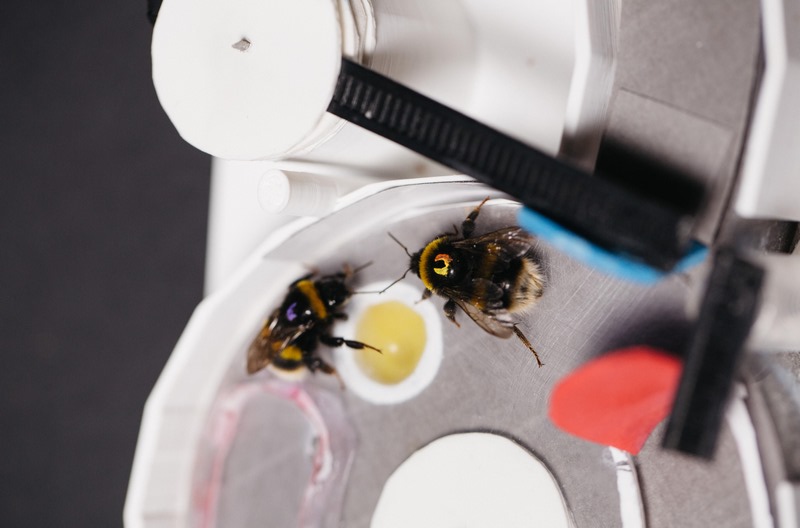A recent paper published in Nature suggests that bumblebees can teach each other new behaviors, indicating that humans and bees share knowledge in a similar way. In the study, bees trained to solve a puzzle were able to pass on this knowledge to others, demonstrating that bees can socially learn complex behaviors, akin to human cultural transmission.
Culture, at its core, involves socially learned behaviors that persist over time. Like human culture, animal culture appears to be cumulative, with behaviors building upon previous ones. While human cumulative culture involves highly complex behaviors, this phenomenon had not been observed in invertebrate species until now.
The study’s authors, including Alex Thorton, note the remarkable ability of humans to improve skills and technologies over time through the spread and refinement of innovations. Bumblebees, known for their social nature, have shown they can acquire non-natural behaviors through social learning to obtain rewards.
Researchers, led by Alice Bridges, Lars Chittka, and Alex Thorton, designed a complex puzzle box to test whether bumblebees can learn more intricate behaviors from their colony members. Despite not succeeding independently through trial and error, untrained bees quickly learned to solve the puzzle after observing trained demonstrators.
Dr. Chittka likened this social learning process to children learning from previous generations, emphasizing the significance of cultural transmission in acquiring new skills and knowledge. Overall, the findings provide compelling evidence that bumblebees are capable of social learning and potentially cultural transmission.
